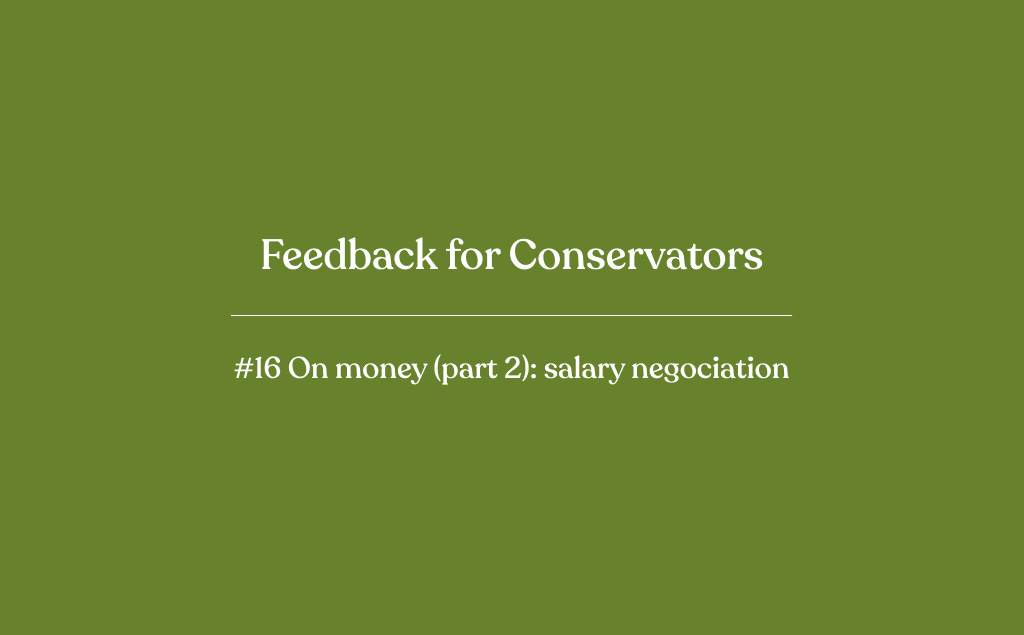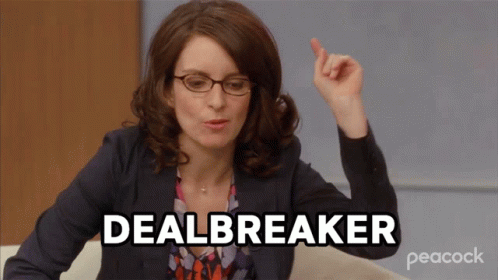This is a monthly free newsletter project that came from the Initiative Feedback for Conservators ✍️: a place to bring a little bit of professional advice to help on topics that I wish I knew more about at the start of my art conservation career. Topics discussed here are recurrent ones that I see over Zoom sessions! So I thought would be useful to discuss them here. It’s also not a perfect newsletter and doesn’t intend to, but rather a space to share. Read here past newsletters. And as always, some disclamers1
So! With the last post, we inaugurated a selection that will all fit into the same theme: Money and conservators. Because we do not talk about it! Before diving into it a quick reminder: this is not money advice, is what has been my experience.
.
On money (part 2): salary negotiation
In the last post, I mentioned a correlated art: negotiation. Because, it is truly, a skill deeply related to money (but not only). Salary negotiation is one of the topics that I help with, but also that I have discussed with other colleagues who are going through it. Therefore, I decided to share four quick resources that have been useful in the past. P.S: I think we can all agree that our colleagues in the USA have led the public discussion about it. This is why most of the resources shared come from there:
.
1. The AIC-FAIC course Making the Ask: Developing Negotiation Tactics in the Field of Conservation, by the objects conservators Ariel O'Connor and Caitlin Richeson. I can not recommend enough this course. I wish SO much that existed back in my student years and made it mandatory to watch it. Yes, it is clearly in the context of the USA, but there are so many things mentioned that are golden. And they were generous enough to make it for free.
.
2. The book Your Money or Your Life by Vicki Robin. Although the book covers many other subjects, there is a specific section that helps me to be fully aware of how much there is a cost in an hour of work. This is something that eventually I had to argue with clients, such as making them aware that what they pay an hourly rate is not just the literal work that I do at that time.
.
3. The book Never Split the Difference, by Christ Voss. A basic. For context: Chriss Voss worked for 24 years as an FBI negotiator. There are tons of interviews and videos of his speeches out there. Among many things, the book helped me to understand that negotiation is not something that you will do punctually one day (and because there is no other option), but rather a daily habit that needs to be polished and applied without fear. It is in the end a skill that can be learned.
.
Finally, this episode from the Girlboss Radio podcast with Laura Wasser. Again some context: Laura Wasser is considered the “Celebrity divorce attorney”. The character of Laura Dearn in the film Marriage Story, for which Dearn won an Oscar, is said that was famously based on her. But to the point: this woman earns, for what she said in the podcast, 850 dollars per hour(!), and even if the advice is very focused on the American work context, still I felt was very worth to listen.
.
Finally, I would like to point out that part of negotiating is also understanding your work value, which is something that most colleagues struggle with voicing out or simply finding out in their profile. Even if you’re an emerging conservator you can have it. But also, it is something that you must, at least partially, be able to plan to archive, which is not something that most of us are comfortable with it since is related to strategy, a word that has such a bad connotation (and yet has none of it). Both topics I will talk soon about it, so stay tuned.
.
That’s a warp for today. More next month, see you then?
This is my personal opinion, which means also that I could be wrong! You do you✨.
Please do not share extracts of this newsletter without my consent.
This is not money advice, is what has been my experience.



